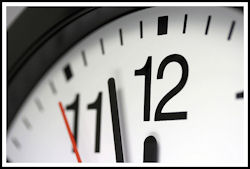CPC ExamCPC Practice Exam
This practice exam has been constructed to reflect the actual CPC exam as closely as possible. It has been updated for 2024!. You will find that each question and its answers closely simulate those on the actual CPC exam as well. The layout of the exam is also the layout you can expect to see on exam day.
The CPC exam is offered by the American Academy of Professional Coders (AAPC) and awards examinees the Certified Professional Coder (CPC) credential upon passing. The CPC credential is the most recognized and sought after medical coding certification in the professional coding community. The exam is five hours and forty minutes long, is offered in almost every state year round, and provides multiple career options. Learn More About the CPC Exam Below:

CPC Application and MembershipIf you choose to take the CPC exam then you will be working with the American Academy of Professional Coders (AAPC).In order to sit for any of the AAPC's examinations individuals are required to obtain an AAPC membership. Membership can be obtained by completing an application and paying the annual fee of $120.00. AAPC membership gives participants discounts on coding books and education seminars, a twelve month subscription to the "Coding Edge" magazine (which offers each offer 1 CEU per. issue). Members also receive a bi-weekly e-mail containing the "Edge blast" (each worth 1/2 CEU), and the permission to sit for the CPC exam, as well as any other AAPC coding examination. In order to sit for the CPC exam AAPC members must submit an examination application and pay the $300.00 exam fee. Once approved this fee will allow individuals to sit up to two times for the selected coding exam. Upon passing the CPC exam the examinee will be awarded the Certified Professional Coding (CPC) credential. This credentials must then be maintained through an annual membership and the accumulation of 18 CEUs each year. CPC Exam DetailsThe CPC exam is one-hundred and fifty multiple choice questions and is five hours and a forty minutes.The time given to complete the CPC examination gives examinees a little over two minutes per question if no breaks are taken. Examinees are permitted to take break time, however, this is deducted from the total exam time.
Medical Concepts: This portion of the exam is sub-divided into smaller, more specific classifications. The following sub-divisions are each assigned 5-10 category specific questions:
Surgery and Modifiers: This section is mainly sub-divided to reflect the surgery section of the CPT book. The following sub-divisions are each assigned 5-10 category specific questions:
This portion of the exam focuses on the remaining CPT codes. Each of the following sub-divisions are assigned 5-10 category specific questions:
There are also several versions of each CPC exam. This is done to ensure that if an individual does not pass on their first attempt that they will not be given the identical examination on their second attempt. This also helps to discourage cheating. **For examples of questions similar to those found on the CPC exam click here.** CPC Examination Tools When sitting for the CPC exam individuals are instructed to bring the following:
When sitting for the CPC exam individuals are instructed to bring the following:
Hand written notes, such a medical terms, anatomy notations, and highlighting of existing material are approved. Extensive notations that are considered an "advantage" over other examinees is not permitted and can disqualify an individual. Notation approval is ultimately up to the proctor. If in doubt contact your proctor prior to the exam date. Examinees are also allowed to place tabs in their coding books for easier referencing. Items such as sticky notes are not approved and will be removed.
CPC Exam RulesOnce the exam application is approved examinees should receive a packet or e-mail containing the:~Date ~Time ~Rules ~Both proctors' contact information
Upon arrival individuals will be required to provide a photo ID and have your books checked for unauthorized notations. Eating and drinking may or may not be permitted during the CPC exam depending on the location. If refreshments are permitted it is encouraged that "quiet" snacks be selected to minimize the disruption to others. Breaks are also permitted but the time is deducted from the total exam time. If requesting a break the examinee must raise their hand and be approved for exit by the proctor. The proctor will allow one individual to sign out at a time.
CPC Exam ResultsExam results are posted online in seven to ten business days. The overall score on the exam is given and individuals must receive a 70% or higher to pass.For examinees who did not pass, they will be provided the score from their three weakest areas in order to help them study for their second attempt. For those who passed the CPC exam a certificate embossed with the examinee's name and credential is mailed within two weeks. Those who wish to re-attempt the examination are not given a required waiting period and can apply online or mail in their request. CPC Examination TipsTip #1 : Successful Book SelectionThe three coding books, CPT, ICD-10-CM, and HCPCS are offered in three editions.
The AAPC has approved the standard and professional edition for the CPT book, and all three editions for the ICD-10-CM and HCPCS. The professional and expert editions are slightly more expensive, but are well worth the investment when preparing for the exam. Guidelines and code descriptions are identical in each edition, but the professional and expert editions offer added reference material. Added material may include pages with common medical terminology and abbreviations, anatomical illustrations, color coded tabs and tables, easy to read conventions, and more. These two editions are easier to use and understand, particularly for beginners. While many individuals have successfully passed the CPC exam with standard edition books, if it is within your means the professional or expert editions are strongly encouraged. Tip #2 : Optimal Time Management
Ex. If you are in the cardiovascular section of the exam and only two of your options have 30000 codes, chances are it's one of those two options since cardiovascular codes are 30000.
Tip #3:Learn Medical Terminology Medical terminology is one of the only things that can completely transform the way you deal with medical coding. Learning medical terminology gives individuals a clearer understanding of code descriptions, results in more accurate code selection, and teaches anatomy in the process.
CPC Exam Anxiety
|
 ICD-10The ICD-10 will be implemented October 1, 2015. Individuals already holding the CPC credential will only be required to sit for an online, 75 question, competency exam. Those who have not already passed the CPC exam will be tested on the ICD-10-CM in place of the ICD-9-CM. CPC Exam ReminderIt is common to skip a difficult question on the exam and come back to it later.Be sure that when skipping a question in the exam booklet that you also skip the bubble on the answer sheet. Although this sounds like common sense, more than one student has made this error and not discovered it until the final minutes of the exam. Professional CodingProfessional coding describes the place of service an individual codes for.In medical coding there are two main types of coding, professional and facility. Professional coding involves private practices, outpatient surgery centers, and emergency departments. Facility coding focuses on inpatient hospital claims. The CPC exam is made for those pursuing a career in professional coding, while the CCS focuses more on facility minded individuals. |
|
|
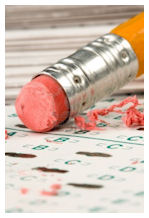
Paper work must be submitted to the AAPC at least four weeks prior to the CPC exam. This gives the AAPC time to process the paper work, verify letters, and send information to examinees and proctors. If paperwork is received by the AAPC after the deadline examinees may be declined for their chosen test date. RSS information
Enjoy This Site?
Then why not use the button below and add us to your favorite bookmarking service? |
||
|
| ||
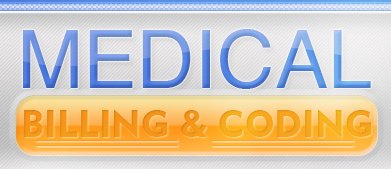

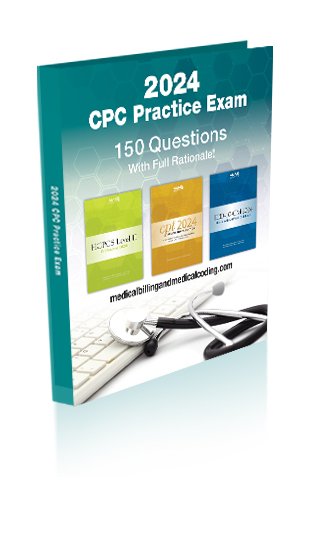
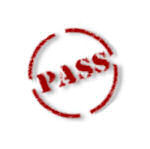 Click here to see
Click here to see 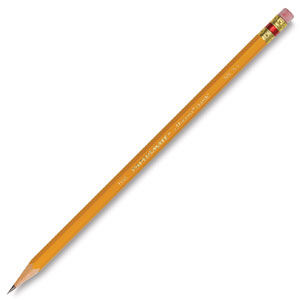 The CPC Exam is Divided into Three Main Sections:
The CPC Exam is Divided into Three Main Sections:
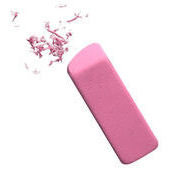
 Most proctors requested the examinees to arrive one half hour prior to the medical coding exam in order to inspect books, explain rules, and answer any questions.
Most proctors requested the examinees to arrive one half hour prior to the medical coding exam in order to inspect books, explain rules, and answer any questions.
